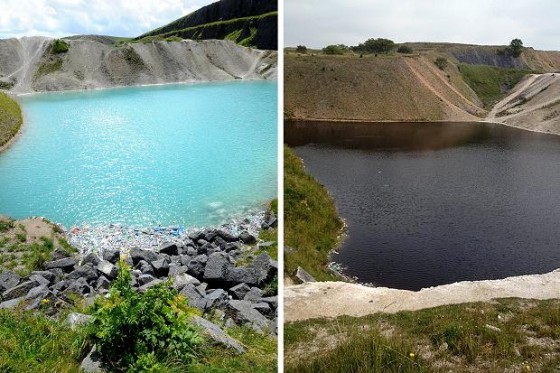Locals called it the Blue Lagoon. And over the years, the unused quarry at Harpur Hill near Buxton in the United Kingdom had become a popular swimming spot and tourist destination for people drawn by its picturesque turquoise waters. The only problem was that the lagoon was toxic. The mix of limestone rocks and quarrying chemicals that made the water so inviting had also left it with a pH level of 11.3 (normal water has a pH of 7), similar to that of household bleach, which comes in at 12.6, or ammonia at 11.5.

So local officials posted signs everywhere that not only warned swimmers that entering the water could cause skin irritations, stomach problems, fungal infections and rashes, but that the water itself was filled with wrecked cars, dead animals, excrement and trash. And still, people of all ages kept coming and and kept swimming.
Finally, officials had enough and in order to save people from themselves, they recently took a novel risk management approach and had the lake dyed black. According to a spokesperson,the dye job may be having the desired effect:
“There is already some anecdotal evidence that this is working as residents said that over the weekend people were coming up as they normally do to swim and then very quickly turning around again when they saw the water.”
So to sum up: swimming in bleach is great as long as it’s a pretty color. Further evidence that sometimes illogical human behavior is the toughest risk management challenge of all.
By the way, no word on whether the new black lake has attracted any goths, metalheads orsea monsters.


 />i
/>i
